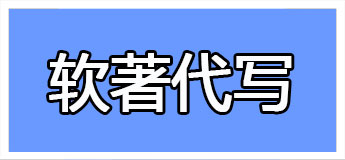
Title: Software Copyright: Understanding the Ins and Outs of Software Ownership
Software copyright is a crucial topic in today's digital age. With the rapid advancement of technology, software has become an essential tool for businesses, organizations, and individuals around the world. As a result, software ownership has become a complex issue that requires attention and understanding. This article will provide an in-depth look at the concept of software copyright, including its history, legal basis, and implications for businesses and individuals.
What is software copyright?
Software copyright is a type of intellectual property law that grants exclusive rights to the creators of original software. The law allows the owner of the copyright to control the use, distribution, and reproduction of the software. This means that anyone who wants to use, distribute, or reproduce the software must obtain permission from the copyright owner.
Historically, software was not considered a form of intellectual property, and there were no laws in place to protect software ownership. However, as the importance and value of software grew, lawmakers recognized the need to protect the rights of software creators. In 1980, the United States Congress passed the Copyright Act of 1976, which included provisions for software copyright.
What is covered under software copyright?
Software copyright covers the code and structure of the software, including its user interface, database, and algorithms. It also includes any literary and artistic elements of the software, such as the software's documentation and help files.
What are the exclusive rights granted to the copyright owner?
The owner of the software copyright is granted several exclusive rights, which include:
1. The right to reproduce the software
2. The right to create derivative works based on the software
3. The right to distribute copies of the software
4. The right to perform the software publicly
5. The right to display the software publicly
These rights apply to all forms of software, including computer programs, mobile applications, and video games.
What are the implications of software copyright for businesses and individuals?
For businesses, software copyright has several implications. If a business uses software that it does not own the copyright to, it must obtain permission from the copyright owner to use the software. Failure to do so can result in legal action, which can be costly and damaging to the business's reputation.
Additionally, if a business creates software, it should take steps to protect its copyright. This can include registering the software copyright with the United States Copyright Office and implementing measures to prevent unauthorized use of the software.
For individuals, software copyright can be an issue when downloading or sharing software. Downloading or sharing software without permission from the copyright owner is illegal and can result in legal action.
What is the duration of software copyright?
Software copyright lasts for a fixed period of time, which varies depending on the country where the software was created. In the United States, software copyright lasts for the life of the author plus 70 years. After this period, the software is considered to be in the public domain and can be used, distributed, and reproduced without permission from the copyright owner.
In conclusion, software copyright is a complex issue that requires attention and understanding. By understanding the concept of software copyright, businesses and individuals can ensure that they are not infringing on the rights of copyright owners and are protecting their own software copyright. As technology continues to advance, software copyright will become an increasingly important issue that will require ongoing attention and adaptation from policymakers and software creators alike.
上一篇:大学申请软件著作权有什么用(大学申请软件著作权有什么用?)下一篇:软件著作权鉴定费:了解常见的费用预算和计算方法
软件著作权说明书代写
一、《申请表》《说明书》《源代码》3个文档
二、300元/案子,3天内交付
三、电话/微信:139-9853-9835




